The challenges and opportunities for bioeconomy education in the BIOEAST macro-region were addressed at a high-level workshop
The workshop "Bioeconomy Education to Enable the Transition to a Competitive, Regenerative, and Fair (Bio)Economy," held in Brussels on 20th November. Organized by the European Commission's Directorate-General for Research and Innovation, the event brought together policymakers, academic leaders, and youth ambassadors to shape the future of bioeconomy education and workforce development in Europe.
The workshop began with a welcome address by Joanna Drake, Deputy Director-General, followed by an update on European policy developments from Peter Wehrheim, Head of Unit for Bioeconomy & Food Systems. The agenda featured engaging breakout sessions on vocational education and training, presentations on alliances between European universities, and a dynamic discussion led by youth ambassadors on their vision for advancing bioeconomy education.
Dr. Barna Kovács, Secretary-General of the BIOEAST Initiative, provided valuable insights into fostering sustainable bioeconomies in Central and Eastern Europe. He emphasized the strategic importance of enhancing research, innovation, and education to unlock the region's potential and outlined three critical actions needed to advance bioeconomy education in the region. The first is to strengthen governance and cross-sector partnerships by designing and implementing governance models supporting collaboration between universities, industry, and the public sector. The second action is to improve education and business models by identifying gaps and tailoring educational programs to meet the specific socio-economic needs of the BIOEAST macro-region. The third action focuses on further strengthening BIOEAST UniNet to increase awareness of bioeconomy benefit to foster cross-sector collaboration and to develop vocational training program to equip the workforce with actionable knowledge.
Dr. Kovacs explained: "The 11 CEE countries are grappling with similar challenges, which are reflected in the Thematic SRIA and will be further explored during the Policy-Expert Workshop on 26th November. Despite some progress, research organizations from the BIOEAST macro-region still face significant gaps in participation in EU framework programs, particularly in terms of coordination. To bridge this gap, it is essential to strengthen partnerships across universities, industry, and the public sector, while focusing education on problem-based learning. We need support to establish pilot facilities and develop comprehensive case studies—not just for students but also for retraining adult professionals. This is vital for managing sustainable supply chains related to soil, water, climate, and biomass."
The workshop concluded with closing remarks by MEP Norbert Lins and a ceremony celebrating the end of the Bioeconomy Youth Ambassadors' mandate.


